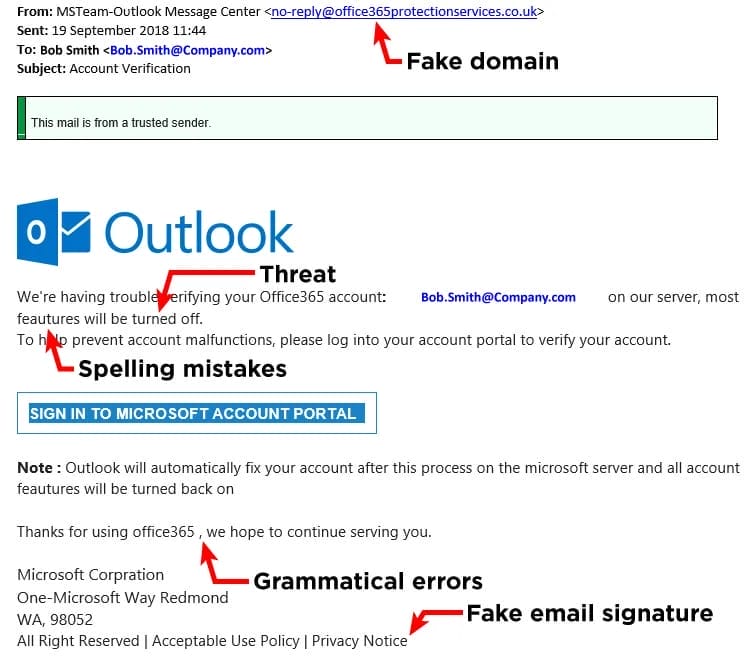It is Security Awareness Week, and it’s crucial to spotlight one of the most pervasive and damaging cyber threats faced by businesses today: phishing attacks. Understanding how to identify and prevent these attacks is not just a technical necessity but a fundamental aspect of maintaining the integrity and trust of any business. Today’s article will focus on the key strategies for identifying and mitigating the risks of phishing attacks, and how they can impact your business.
Understanding Phishing Attacks
Phishing is a cybercrime in which individuals are contacted by email, telephone, or text message by someone posing as a legitimate institution to lure individuals into providing sensitive data. This data often includes personally identifiable information, banking and credit card details, and passwords. The information is then used to access important accounts and can result in identity theft and financial loss.
How to Identify Phishing Attacks
Identifying phishing can be challenging, as cybercriminals have become increasingly sophisticated. However, there are several red flags to watch out for:
- Suspicious Email Addresses and Links: Check the sender’s email address for any discrepancies. Be cautious of links in emails, especially if they direct you to a website where you’re asked to enter personal information.
- Urgency and Threats: Many phishing emails create a sense of urgency or use scare tactics, like threatening to close an account, to prompt a quick response.
- Requests for Sensitive Information: Legitimate organizations will not ask for sensitive information through email or text messages.
- Grammar and Spelling Mistakes: Professional companies usually ensure their communications are free of these errors.
- Unsolicited Attachments: Be wary of unsolicited email attachments, which could contain malware.
Preventing Phishing Attacks
To safeguard your business from phishing attacks, implement the following strategies:
- Educate Your Employees: Regular training sessions on cybersecurity can help employees recognize phishing attempts.
- Use Advanced Email Filtering: This helps to filter out many phishing emails before they reach your inbox.
- Implement Multi-Factor Authentication (MFA): Even if credentials are compromised, MFA provides an additional layer of security.
- Regularly Update Systems: Ensure that all systems are up-to-date with the latest security patches.
- Backup Data Regularly: Regular backups can help mitigate the damage in case of a data breach.
Impact of Pishing on Businesses
The impact of phishing attacks on businesses can be profound:
- Financial Loss: From the direct theft of funds to remediation costs, phishing can be financially crippling.
- Data Breach: Sensitive company data can be compromised, leading to legal and regulatory implications.
- Reputation Damage: The trust of customers and partners can be severely damaged, impacting long-term relationships and business prospects.
- Operational Disruption: Recovery from a phishing attack can consume significant time and resources, disrupting normal business operations.
Conclusion
Security Awareness Week is a timely reminder of the importance of cybersecurity. By understanding the tactics used in phishing attacks and implementing robust preventative measures, businesses can significantly reduce their risk of falling victim to these cyber threats. Regular training, system updates, vigilant monitoring, and strong security policies are not just recommended practices; they are essential pillars of a secure and resilient business framework.
At Hilltop Surfaces, we are committed to implementing best practices to protect both employee and customer data. Our dedication to security is a testament to our commitment to excellence and trustworthiness in all aspects of our operations. By staying informed and vigilant, businesses like ours can significantly reduce the risk of falling victim to cyber threats and maintain the confidence and loyalty of customers and partners alike.












